7 Reasons Why Organic Thyme is the Secret Ingredient Your Kitchen Needs
Table of Contents
- Introduction to Organic Thyme
- Why You Should Go Organic with Thyme
- How to Use Organic Thyme in Everyday Cooking
- Organic vs. Non-Organic: A Flavor & Nutrition Face-Off
- Buying Guide: How to Choose the Best Organic Thyme
- Storage Tips for Maximum Freshness and Potency
- Health Perks of Going Organic with Thyme
- Conclusion: Make Thyme a Star in Your Spice Rack
Introduction to Organic Thyme
Thyme is more than just a tiny green herb that smells like summer and warmth—it’s a powerhouse of flavor, nutrition, and versatility. But when it comes to spice lovers and home chefs alike, not all thyme is created equal. Enter organic thyme, the cleaner, purer version of this culinary gem.
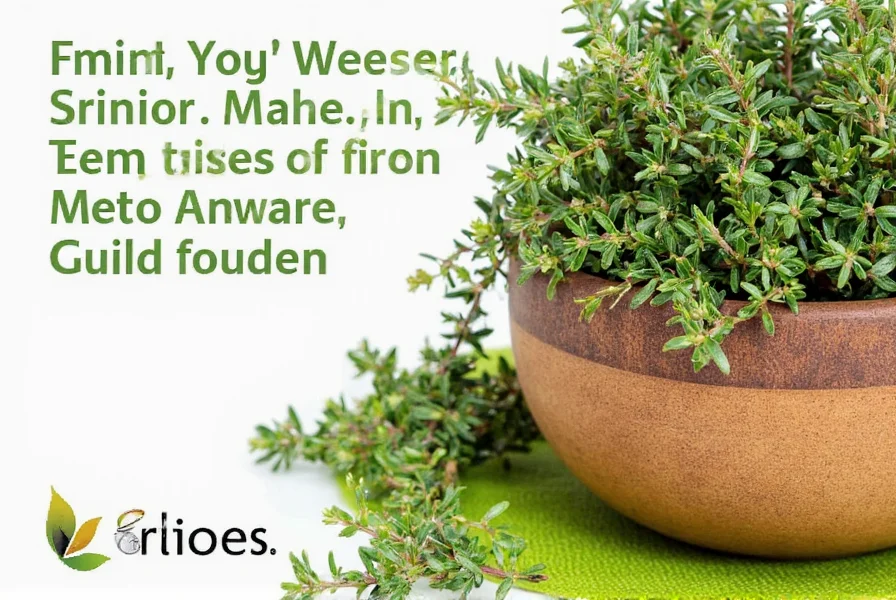
Grown without synthetic pesticides or fertilizers, organic thyme retains its natural essence and aroma. Whether you're roasting chicken, making marinara, or brewing a soothing herbal tea, this humble herb steps up to the plate with quiet confidence and bold impact.
Why You Should Go Organic with Thyme
If you’ve ever tasted both organic and non-organic thyme side by side, you know there’s a world of difference. Here are some compelling reasons why going organic with your thyme is worth the switch:
- Better Flavor: Organic farming methods often enhance the natural oils and aromas in herbs, giving organic thyme a richer taste profile.
- Healthier for You: Free from synthetic chemicals, organic thyme reduces your exposure to pesticide residues.
- Eco-Friendly Farming: Choosing organic supports sustainable agricultural practices that protect soil health and biodiversity.
- Longer Shelf Life: Due to better growing and drying techniques, organic thyme often lasts longer without losing potency.
- Pure Aroma: Organic thyme gives off a more intense and earthy scent—perfect for cooking or DIY beauty products.
How to Use Organic Thyme in Everyday Cooking
Now that we've made the case for organic thyme, let's talk about how to use it! This versatile herb plays well with others and shines across a variety of dishes. Here are some top ways to put organic thyme to work in your kitchen:
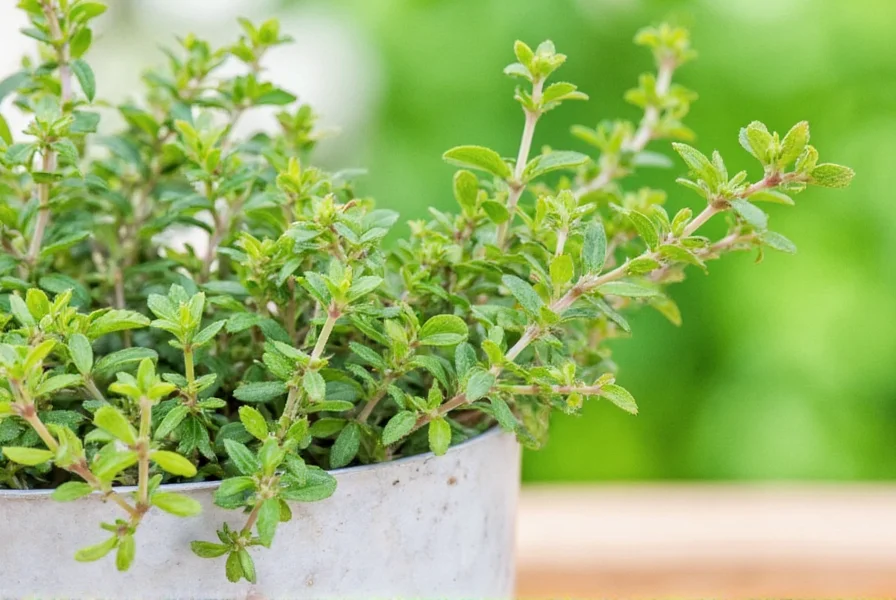
- In Roasted Vegetables: Sprinkle a pinch over carrots, potatoes, or squash before roasting. The heat unlocks its aromatic oils.
- In Meat Dishes: Add to marinades for chicken, lamb, or beef. It pairs especially well with garlic and rosemary.
- In Soups and Stews: Toss in a few sprigs during simmering for deep, herby undertones. Remove stems before serving if desired.
- Homemade Bread: Mix finely chopped fresh thyme into dough for savory focaccia or rustic rolls.
- Infused Oils: Steep dried organic thyme in olive oil for a flavorful base for dressings or dipping sauces.
- Tea Time: Brew a calming herbal tea by steeping fresh or dried organic thyme in hot water. Add honey for extra comfort.
Organic vs. Non-Organic: A Flavor & Nutrition Face-Off
To help you understand what makes organic thyme stand out, here’s a quick head-to-head comparison between organic and non-organic varieties:
| Aspect | Organic Thyme | Non-Organic Thyme |
|---|---|---|
| Taste | Fresher, more vibrant, and complex | Mild, sometimes bland or chemical-tainted |
| Nutrition | Higher levels of antioxidants and essential oils | Potentially lower due to synthetic farming practices |
| Chemicals | Zero synthetic pesticides or fertilizers | May contain residual pesticides |
| Shelf Life | Lasts longer without losing flavor | Can become dusty or lose aroma quickly |
| Eco Impact | Supports sustainable farming | Often relies on chemical-heavy agriculture |
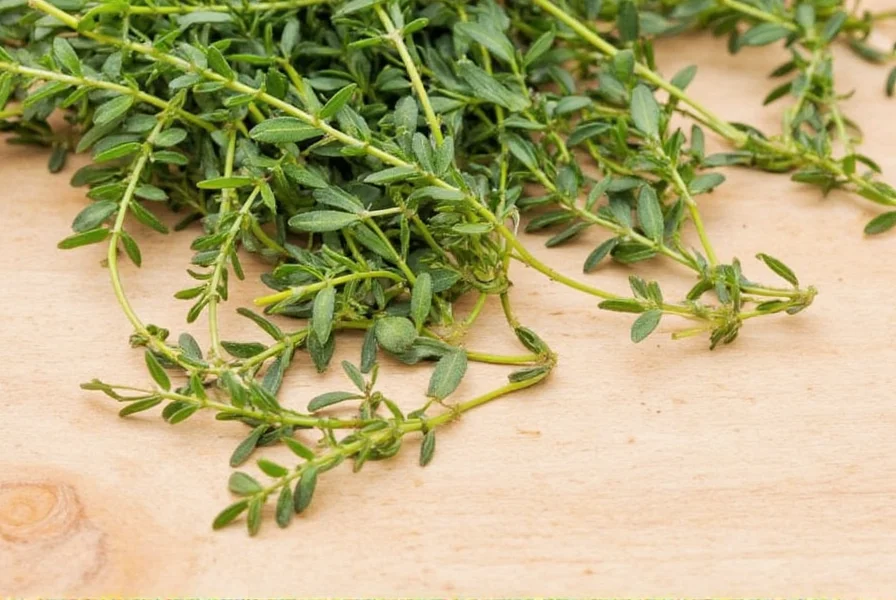
Buying Guide: How to Choose the Best Organic Thyme
Not all “organic” labels are created equal. To ensure you’re getting the real deal, here are a few key tips for choosing high-quality organic thyme:
- Look for Certifications: Check for USDA Organic, EU Organic, or similar recognized certifications on the packaging.
- Check the Ingredients List: There should be no preservatives, fillers, or artificial additives. Just pure thyme!
- Color Matters: Good quality dried thyme should be a deep green to olive hue. Avoid anything brownish or faded.
- Smell Test: Crush a bit between your fingers. If it releases a strong, pleasant aroma, it’s fresh and potent.
- Whole Leaves Over Powder: Whole leaves retain flavor longer. Ground thyme loses potency faster.
- Brand Reputation: Stick with trusted brands known for their commitment to organic integrity.
| Product | Features | Advantages | Best For |
|---|---|---|---|
| Herbal Roots Organic Thyme | USDA Certified, air-dried, no additives | Superb aroma, long shelf life | Chefs and serious home cooks |
| Nature’s Way Organic Thyme | Great value, sustainably packaged | Perfect for everyday use | Beginners and casual users |
| Mountain Harvest Organic Thyme | Hand-harvested, small-batch production | Exceptional flavor and purity | Foodies and gourmet enthusiasts |
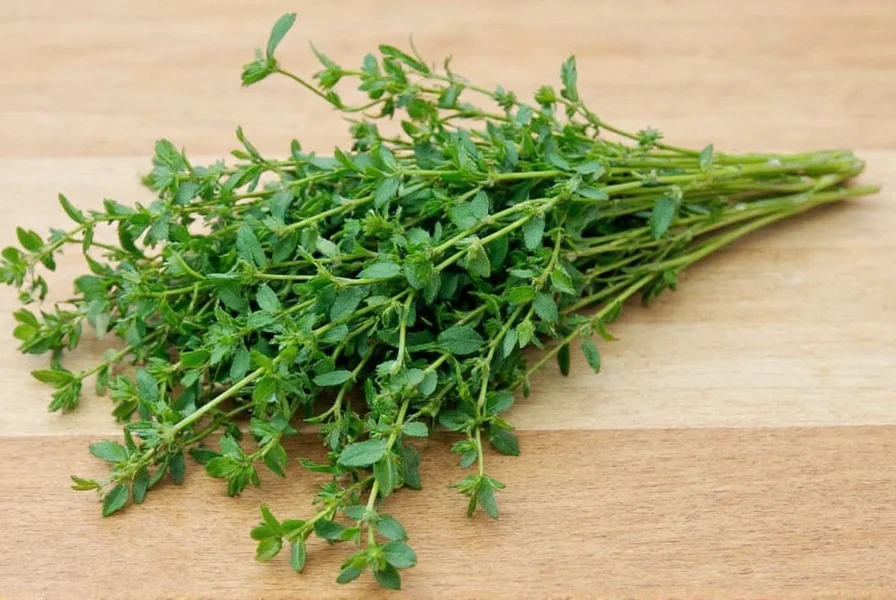
Storage Tips for Maximum Freshness and Potency
Once you’ve invested in quality organic thyme, make sure it stays fresh and fragrant for months to come with these storage tricks:
- Airtight Containers: Store in glass jars or resealable bags away from light and moisture.
- Cool, Dark Place: A pantry or cabinet works best. Heat and sunlight degrade flavor fast.
- Don’t Rush to Chop: Keep leaves whole until ready to use to preserve essential oils.
- Label and Date: Helps track freshness and avoid confusion with other spices.
- Freeze Fresh Bunches: Wash and dry thoroughly, then freeze in a ziplock bag for future use.
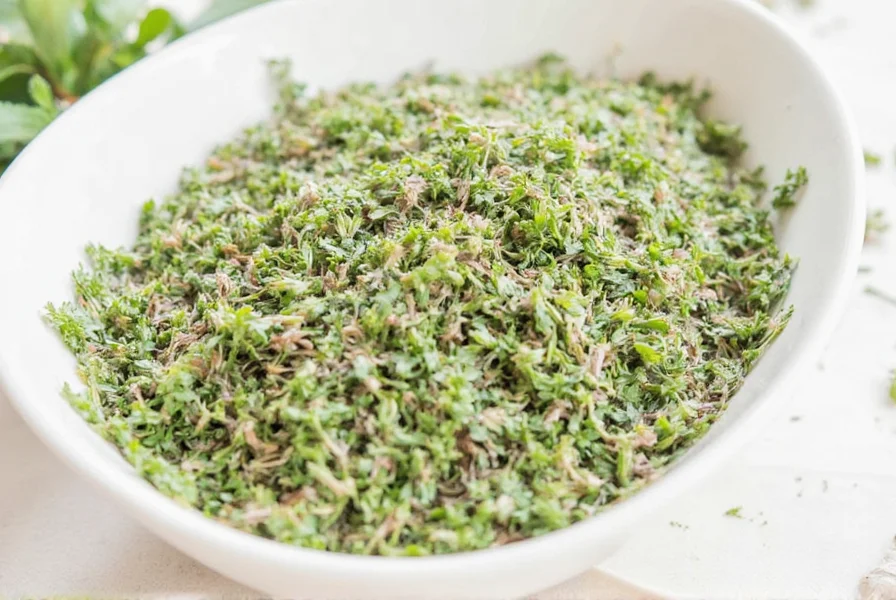
Health Perks of Going Organic with Thyme
Beyond the kitchen, organic thyme offers a host of health benefits thanks to its rich content of antioxidants and anti-inflammatory compounds:
- Boosts Immune System: High in vitamin C and other immune-boosting nutrients.
- Antimicrobial Properties: Contains thymol, which has natural antiseptic qualities.
- Digestive Aid: Can help soothe bloating and gas when consumed as a tea or infusion.
- Stress Relief: Its aroma is known to promote relaxation and mental clarity.
- Skin Health: Used in natural skincare for its antibacterial and cleansing properties.
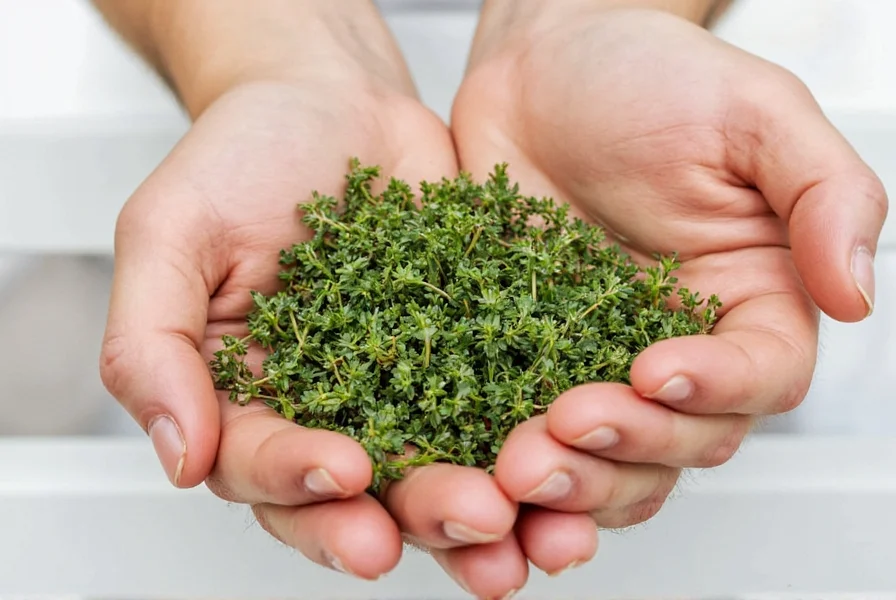
Conclusion: Make Thyme a Star in Your Spice Rack
Organic thyme isn't just another herb—it's a kitchen staple that elevates every dish it touches. With its clean sourcing, robust flavor, and impressive nutritional profile, switching to organic thyme is a simple but powerful way to upgrade your cooking game.
Whether you’re a seasoned chef or someone who just loves playing around with flavors, don’t underestimate the power of a few sprigs of organic thyme. From hearty stews to aromatic oils, this little green marvel brings big results—and a lot of joy to your meals.
So next time you reach for the spice rack, skip the generic stuff and go for the good stuff—your taste buds (and body) will thank you!
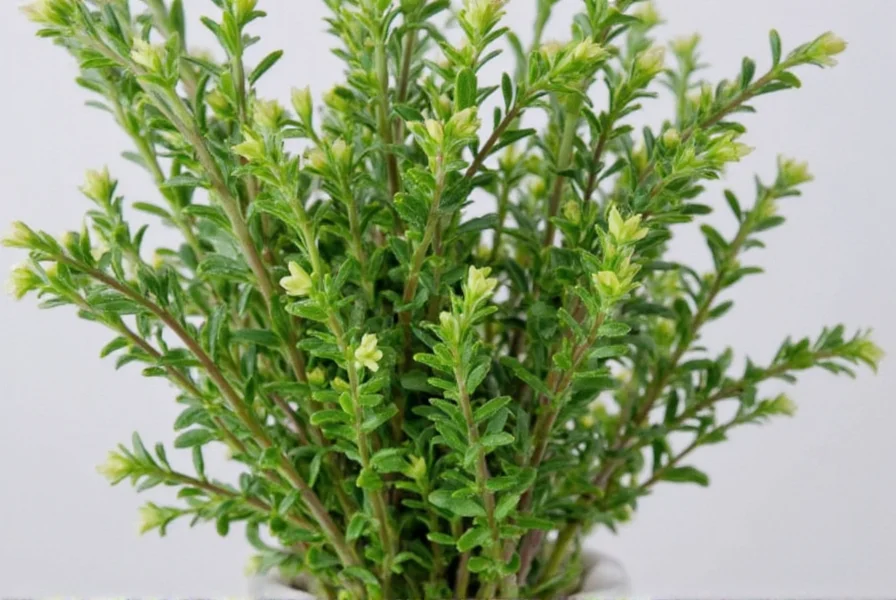

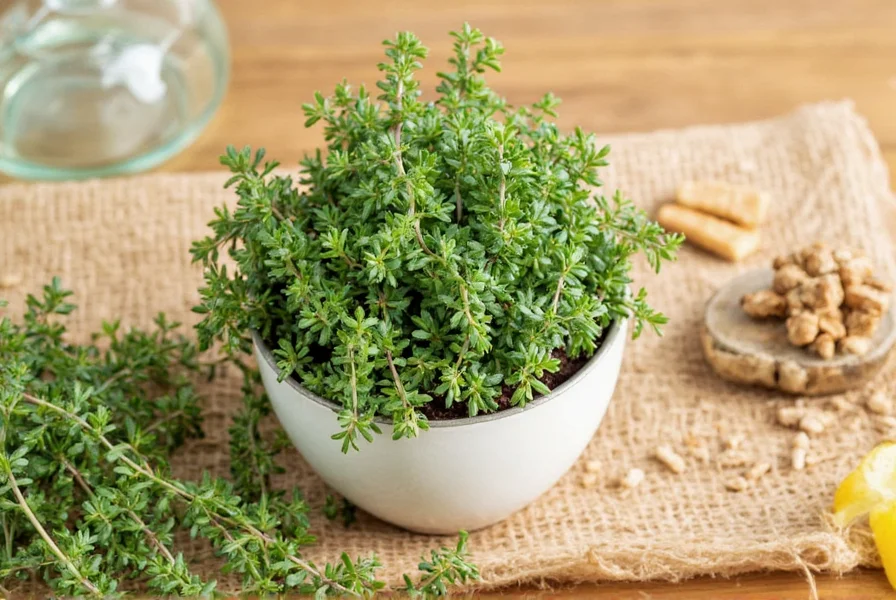









 浙公网安备
33010002000092号
浙公网安备
33010002000092号 浙B2-20120091-4
浙B2-20120091-4